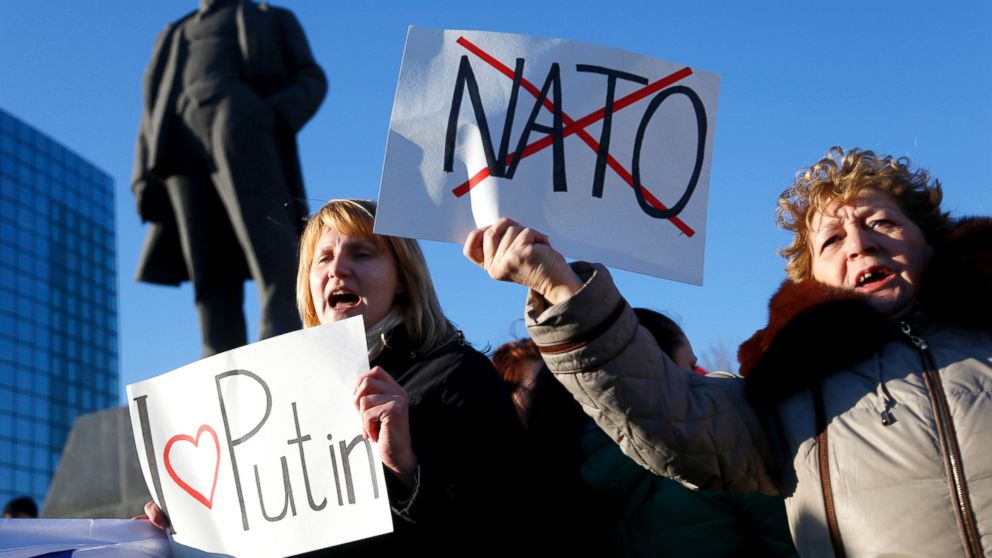Here's a Recipe for Failure in Ukraine
Research finds intervention by one country could be disastrous.

March 9, 2014— -- If the United States or Western Europe intervenes in the turmoil in Ukraine in hopes of promoting democracy, a new study suggests that the citizens of that troubled country better believe the troops are friends.
If they are seen merely as representatives of a rival country with its own interests at stake, the chances of success are nearly zero.
That's the implication of a new study, which found that an intervention in a civil war by a single country can "poison the well of democracy," even if the intention is to help rebels overthrow a merciless dictator.
If the rebels win, the foreign support from a country perceived to be a rival will leave a residue of distrust that will undermine any attempt to build a free and prosperous country, the study finds.
Political scientist Michael Colaresi of Michigan State University analyzed 136 civil wars from 1946 to 2009 and came up with some dramatic results, published in the international Journal of Peace Research:
That's worth repeating. Of 34 civil wars, all ended in failure except Algeria, which benefited from the fact that a rebel group was more feared than its chief rival, Morocco. Otherwise, its flat-out zero for democracy.
Other researchers at the University of California, San Diego, have found that interventions don't usually help bring a civil war to a close; instead, they often make it last longer. And researchers at New York University and Stanford University found that "third-party military interventions" have often led to "erosion in the trajectory of democratic development."
So history suggests intervention may lead to the opposite of the desired result.
Of course, intervention was not the only reason for failures, Colaresi said in a telephone interview. Civil wars can be complex, and if there is no history of democracy or democratic institutions in the country, or no clear leader whose motives are above reproach, then success is unlikely.
"This study is not an end-all, be-all," he said, but "this is an important component that we didn't previously understand."
Colaresi's research was based largely on extensive data collected on civil wars over the past 20 years by researchers at Indiana University, the University of Illinois and the University of Michigan. Civil wars that did not have interventions by rival countries have had a better fate.
Princeton's Leonard Wantchekon estimates that about 40 percent of all civil wars between 1946 and 1993 succeed in establishing, or rebuilding, a democracy.
Colaresi argues that even if the citizens of a country are unaware during the war that an enemy country provided aid to the winners, that will ultimately come out if the country moves towards democracy. More transparency and competitive elections will result in disclosures that erode the public confidence in the winners, he said.




